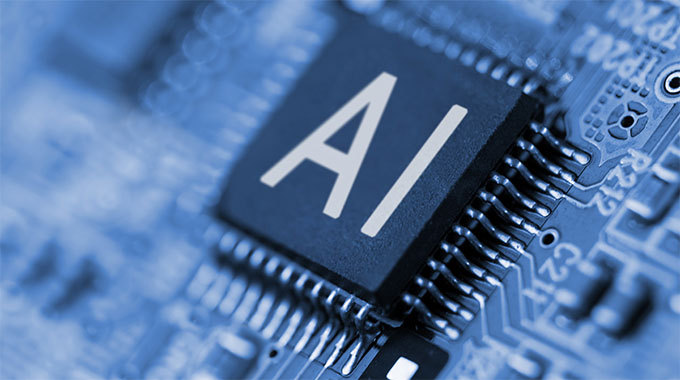AI at the crossroad: A new frontier for education in Africa today and beyond

Joseph Mutangadura-Herald Correspondent
The emergence of Artificial Intelligence (AI), has made the education in Africa to enter a new era just as the African sun illuminates the vast landscapes.
AI is becoming a crucial factor in transforming learning settings, improving accessibility, and creating educational solutions that could help attend to Africa’s distinct challenges and opportunities where previous attempts to achieve universal education have encountered limitations in resources and capabilities.
These technologies encompass a variety of tools, such as virtual tutors, customised learning systems and data analytics platforms that offer valuable information on student performance and educational requirements.
Many African countries face funding, teacher, and geographical challenges in their educational institutions.
AI is becoming a revolutionary tool tailored to the learning needs of each learner.
African pupils, including Zimbabweans, benefit most from mobile technology.
This makes technology accessible to vulnerable communities beyond well-funded urban private schools.
Adaptive learning systems, along with other advanced applications, play a crucial role as artificial intelligence tools in the field of education.
Adaptive learning systems utilise AI to assess a student’s progress in learning and tailor the information to meet their individual needs, facilitating individualised learning experiences.
The systems cater for varying learning speeds of learners and prioritise areas that require additional focus, hence enhancing outcomes.
An AI-powered scheme in rural Kenya allows students to use cellphones to access curriculum-aligned interactive instructional content.
The AI measures students’ competency and tailors teaching resources to ensure each learner receives suitable instruction. In South Africa, AI-powered virtual tutors are helping students with maths and science due to a teacher shortage.
The present situation
In Africa, the integration of AI into education is still in its infancy but has shown encouraging growth.
AI is still not something that many people can immediately relate to.
Oxford Insights released the 2023 edition of the Government AI Readiness Index on the readiness of 193 governments on AI worldwide.
This report notes that sub-Saharan Africa has the lowest when compared with other world governments.
Over the past year, three countries have published new national AI strategies, and one has announced a forthcoming strategy.
Rwanda became the first low-income country to release an AI policy, with Senegal and Benin following suit in 2023.
Focus on achievement
AI has huge potential in African education as it can solve continent-wide issues like teacher shortages and overcrowded classrooms.
Artificial intelligence algorithms can identify patterns, predict student performance, and improve teaching by analysing large amounts of educational data.
Since Zimbabwean schools and ZIMSEC are regional leaders in school examinations, this AI could benefit them the most.
The technology can automate administrative tasks, letting teachers focus on teaching rather than paperwork.
As a result, automation can drastically reduce administrative workload and improve organisational effectiveness.
Software powered by AI can also tailor learning to each student’s speed and manner, enhancing performance.
It also helps schools and institutions make educated decisions by providing data-driven insights.
Obstacles and factors to take into account
Although AI has made progress, integrating technology into teaching is tough.
Data privacy, the digital gap between socio-economic classes, and cultural insensitivity in AI algorithms that are not well-adapted to local surroundings have prompted concerns. Zimbabwe, with its rich cultural heritage, needs robust policy frameworks, community involvement, and technology-education co-operation.
Accessibility and justice are other concerns.
The educational gap may be exacerbated by the lack of ICT resources in rural and under-resourced areas compared to well-funded private schools.
The final concern is privacy, as these systems handle sensitive student data.
Maintaining trust and honesty in educational systems requires upholding confidentiality and ethical data processing.
The growing use of AI technology could lower teachers’ and students’ educational involvement.
Zimbabwe boasts one of Africa’s top education systems, renowned worldwide.
We must maintain authenticity while staying relevant in the fast-paced world of technology-driven education. The school system must balance technology and essential instructional approaches to avoid over-reliance on AI.
The future
AI is able to help increase pass rates in schools and capacitate both schools and examination bodies. ZIMSEC and schools can track challenges and find possible solutions.
The potential in African education is immense; it is projected to become a fundamental tool in educating and enhancing the skills of teachers, hence increasing their efficacy and expanding their impact.
It has the potential to significantly impact educational planning and management.
By utilising predictive analytics, it can effectively distribute resources and accurately predict future educational requirements.
The future prospects of AI in education are closely tied to the development of emerging technologies.
In the future, advanced AI technologies, such as highly developed AI tutors and interactive virtual reality classrooms, are expected to significantly transform educational methods. These tools provide engaging and interactive learning experiences that can greatly improve student engagement and comprehension.
The ministries responsible for education need to start looking at synergies with mobile providers to see how the implementation can be faster and more affordable if it is to be accessed countrywide.
Policy and governance
Future AI use in education will require solid policy frameworks. Effective regulations must address AI’s ethical implications, provide fair access, and benefit all students.
This is crucial so we do not wind up with a system that takes everything away from learners and creates generations of false learners in our children.
This will produce lazy school children who outsource their learning to computers and systems.
Professor Arthur Mutambara constantly emphasises we cannot un-invent technology, but we can harness its benefits. AI is expected to revolutionise schooling.
Tailor-made learning paths and borderless global classrooms are exciting and profound possibilities.
They promise an easier, more engaging, and more efficient education future.
AI in African education appears to be growing in the future. ICT infrastructure and education initiatives are essential. Furthermore, laws that support an all-encompassing approach to AI use must be implemented to ensure that all students, regardless of socioeconomic level, can benefit from these advanced educational resources.
As a vision for the future, you can imagine a world where every African child, regardless of socio-economic background, receives a top-notch education tailored to their learning style, needs and culture.
AI-enabled education in Africa has immense potential but requires caution and careful decision-making.
The technology can lead to a brighter educational future for all African children through innovation, investment, and inclusive initiatives.
As we enter this new era, all stakeholders must collaborate to ensure that AI in education helps everyone without leaving any child behind.
These technologies can revolutionise education by solving long-standing issues.
Harnessing this potential requires careful risk assessment and pro-active collaboration between educators, politicians, and technology developers.
With a balanced and intentional AI adoption, the educational industry may expect a future where technology improves learning for everybody.
Dr Joseph Mutangadura is a senior lecturer in Journalism and Integrated Communication at Tshwane University of Technology.








Comments